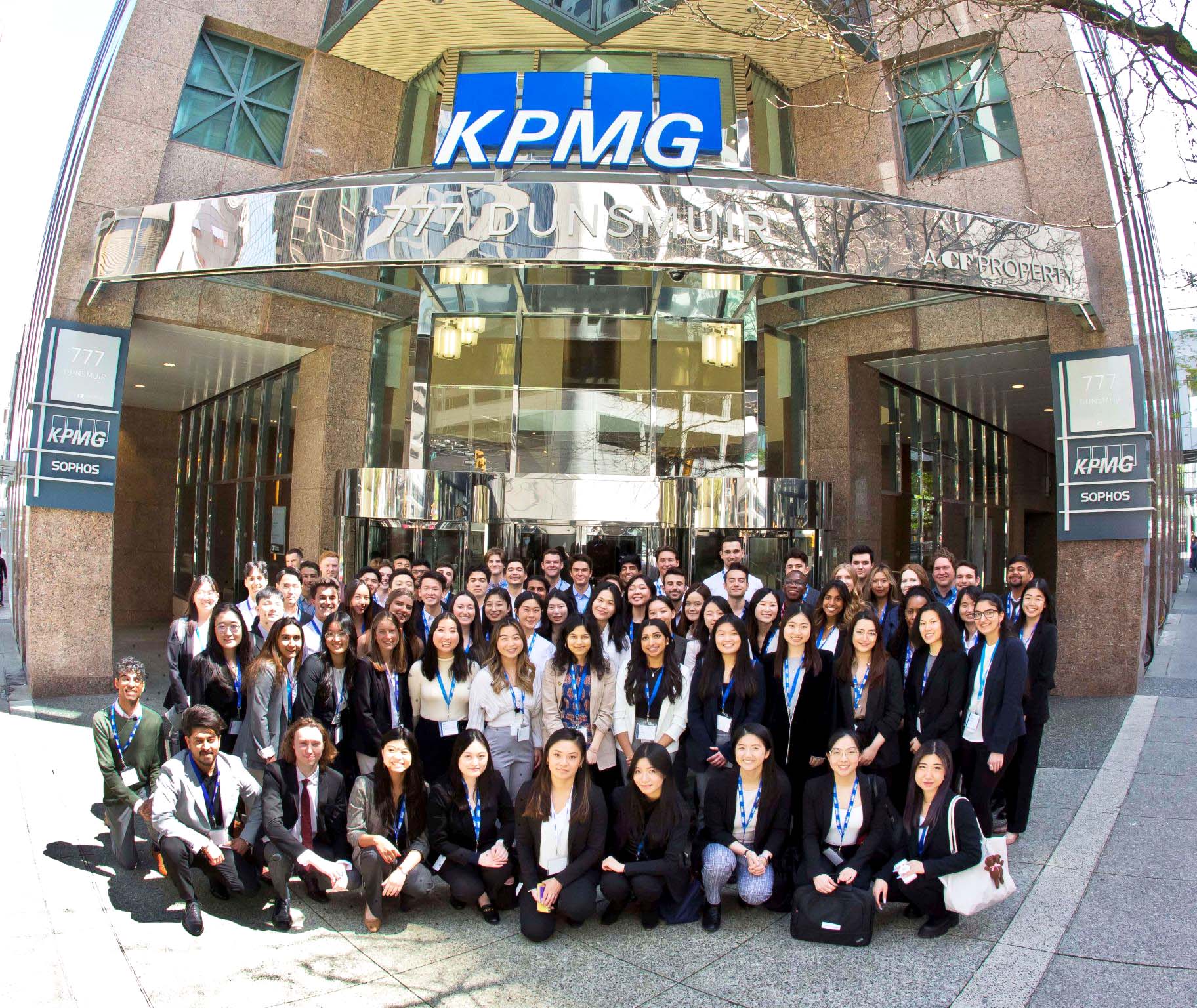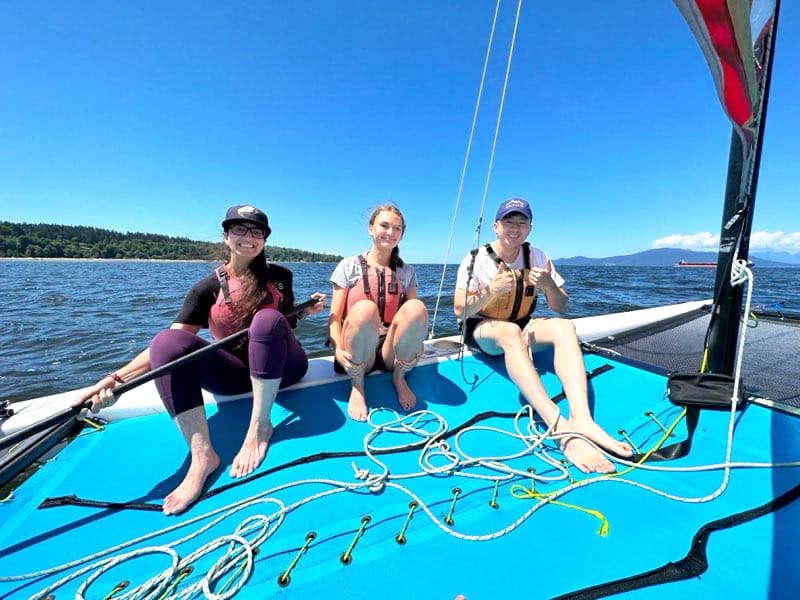Featured Student: Tabreek Somani
June 11, 2024

June 11, 2024

I’m currently completing my undergraduate degree in BSc. Computer Science, Software Engineering and will be continuing to pursue my MM (Master of Management) Dual Degree after graduation this May.
One of my key motivations is to be able to empower women and other minorities in the tech field, as well as improve representation and retention.
It’s incredibly disheartening to see the low statistics, despite gradual progress being made. The lack of diversity in this field causes major drawbacks for society at large, and as a woman in STEM myself, one of my missions is to improve the environment and community for women in STEM so they can feel supported and help the world develop more equitably and at a much faster speed, through including more diverse perspectives.
Majority of the CS classes were heavily conceptual, teaching elegant theories and ways of thinking.
I wanted to take my learning a step further and see the concepts learnt in class actually applied in real-life cases.
My first internship was at UBC Design Lab with Professor Dongwook, where we explored design methodologies to mitigate invisible labor in gig work.
Following that, I joined Planview (formerly Tasktop Technologies), as a junior software engineer for an 8-month term streamlining value stream management for software companies globally.
Next, I joined KPMG for a 4-month term as a Technology Risk Consultant, getting exposure to best practices in security and doing risk assessments, as well as proposing risk mitigation strategies in the IT sector.
My final co-op was at OnDeck Fisheries AI, an entrepreneurship@ubc startup, where I joined as a software engineer among a team of 5. Working at a startup exposed me to entrepreneurship and greater technical scope, as compared to my previous roles, and was the perfect culmination of my co-op journey.

I joined the C.O.D.E initiative as a tutor back in 2022.
As someone who’s been incredibly passionate about making computer science education accessible to all, this felt like the perfect opportunity to pay it forward. It was so fulfilling to teach these youth filled with lots of curiosity and hope, as they grasped new concepts and connected dots incredibly fast.
It was also a major source of learning for me, to be able to tailor the teaching for each specific student in a way that worked best for their learning styles.
During my time, I had the opportunity to lead over 50 programming classes for students between the ages of 7 – 15 years old.
When I was starting out my degree, I found it incredibly empowering to have role models in the field, who inspired me through their journey.
This motivated me to share my journey along the way and inspire other girls who aspire to explore STEM careers. Throughout multiple panels with UBC’s code committee and Women of Rewriting the C.O.D.E, I had the opportunity to share my experiences and thoughts surrounding imposter syndrome in school and in the workplace.
Additionally, the UBC Computer Science and Science mentorship programs have been incredibly helpful in matching me with senior students and given the opportunity I’ve also been able to serve as a mentor in my upper years of my degree, as a way to pay it forward.
Inclusivity can be implemented in so many simple ways, in day-to-day actions.
For example, sharing your journey, encouraging others who may be feeling defeated from the struggle (both academically and socially), being a mentor and empowering those who are following in the footsteps, educating and spreading awareness.
One of my most empowering spaces have been panels where women share their career journeys, whether that be through the CODE committee or through Science Co-op sessions.
Microservices employs a set of independent components in the system architecture where services communicate using APIs between each other, rather than having dependencies.
My contribution during my co-op term was to migrate the web service to be more reliable and scalable using AWS S3 and Cloudfront services, which lead to faster response times and improved our commitment to the Service Level Objectives (SLOs).
In addition to my technical role at the startup, I took on diverse responsibilities in business development, including market research, website redesign and onboarding for new hires.
I played a pivotal leadership role within a small development team, creating workflows for efficient development and timely product releases. These experiences broadened my perspective, fueling my passion for entrepreneurship.
My involvement in Vancouver Startup Week further deepened my understanding of the startup ecosystem and its collaborative dynamics. I also explored entrepreneurship further through taking the New Venture Design course in my final year. Entrepreneurship to me comes up in everyday initiatives I take or change and improvements I can lead within organizations that I’m part of.
I see myself having my own venture soon. Exposure to startups, as well as developing an entrepreneurial network, has given me an incredible community of support when I do take the leap.
One of my highlights during my co-op was during my time at OnDeck, when we went for a team outing to sailing at Jericho beach and caught sight of Orcas along the shore!

My biggest achievement was my own transformation throughout my co-op experiences.
At Planview, my first software role, I felt incredibly lost in my first few weeks. I had no clue how to start a ticket or where to even look. As I learnt along the way, I completed tasks more independently.
In my final co-op at OnDeck, I was able to initiate and take ownership of more unfamiliar tasks, including exploring the depths of machine learning for global conservation efforts. This transformation was definitely my best achievement throughout my co-op experiences.
Going from a directed environment in school, to an undirected and self-motivated environment at work, where there isn’t necessarily a set answer or auto grader tests to check against, it was challenging to adjust to the work environment.
I was lucky to have several mentors in my first software engineering role to guide me along the way. Throughout the process, I learnt that its critical to find a balance between taking initiative to problem solve, as well as asking when feeling stuck.
This combination creates the best path to be successful in any role.
Working with different people in different roles and organizations, exposed me to diverse experiences and helped me realize what I enjoy most. I also had the opportunity to build and expand my network learning from my colleagues and seasoned professionals in the industry.
Co-op exposed me to industry through so many different facets.
It gave me the opportunity to try out software engineering at different scales across various use cases, from value stream management to building AI to save the ocean.
It’s also reaffirmed my enjoyment for solving ambiguous problems creatively, which was my biggest motivation for choosing computer science as my major!
My Co-op Coordinators were my most impactful resource.
I cannot emphasize how doing a practice interview, or general advising regarding job search strategy, helped me feel confident and prepared me to move forward! They really are the true superstars!
Try having a variety of experiences – whether that is in a different set of roles or different types of companies.
Someone once told me to experience working in a startup, a big tech company and a consulting company to experience the different opportunities that are available to you, given how risk-free experimenting during Co-op is.
Remember that interviews are two-way, prepare some interesting and useful questions you would want to know answers to if you were to join the team. The interview is just as much your lens into the company, as it is their impression of you. Although the company sets up the interview, its your opportunity to also interview them to understand the mutual fit between the role and your goals!
After graduation, I'm excited to embark on the next chapter of my academic journey by starting the Master of Management Dual Degree this summer. I see this as an opportunity to further develop my skills in business management and leadership, complementing my technical background. I believe this interdisciplinary approach will equip me with the knowledge and expertise needed to drive impactful innovation in the tech industry.
We honour xwməθkwəy̓ əm (Musqueam) on whose ancestral, unceded territory UBC Vancouver is situated. UBC Science is committed to building meaningful relationships with Indigenous peoples so we can advance Reconciliation and ensure traditional ways of knowing enrich our teaching and research.
Learn more: Musqueam First Nation